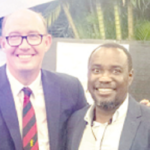In commemoration of this year’s World Environmental Health Day, the Environmental Health Scientists Association of Nigeria (EHSAN) has visited Agbowo, a community in Ibadan, Oyo State, to raise awareness among its people on the importance of a clean environment on human health and to draw the attention of government to the environmental challenges in the area.
The inauguration of World Environmental Health Day (WEHD) by the International Federation of Environmental Health (IFEH) took place on September 26, 2011, in Indonesia, and has been celebrated annually ever since by environmental health practitioners and NGOs.
The theme for WEHD this year is “Strengthening environmental health systems for the implementation of the Sustainable Development Goals (SDGs).”
Accordingly, EHSAN which is an affiliate of IFEH, visited the community “to conduct a rapid assessment to gather information that will inform policy and future interventions,” Professor Godson Ana, the national president of EHSAN, said.
“We were looking at issues of water supply. Agbowo environment is lacking water supply. The checklist we developed for the rapid assessment will examine water sources.”
Sanitation, excreta and waste management, quality of housing, air quality were other items on the checklist for investigation in the community, Professor Ana noted.
“We will complement this with training the people so that some of the things that require individuals to address will be addressed and people can change their attitudes. The other aspects that require NGOs and government to come in to support will also be considered.”
Speaking in the same vein, Dr Taiwo Hammed of the Department of Environmental Health Sciences at the College of Medicine, University of Ibadan, added that EHSAN visited the community “to bridge the gap between the community and the academia, to tell them about our research findings that will meet their environmental needs.”
Dr Hammed, who is the chairman of the Oyo State chapter of EHSAN, said “We have divided our intervention into two: one is to send data collectors with a checklist to investigate various aspects of the community to provide evidence-based outcomes.
“These outcomes will influence our way of capacity-building, which is the second part.”
Major Razak Salawu, a community leader in Agbowo, expressed his delight over the community intervention and the expected outcome which he believed will better the lot of the people of his community.
“We have been victims of environmental problems, flood disasters and the rest as far back as 1980. We are happy that we are making contact with this body. We believe the will do something about our situation and let the government know that they should not only be concerned about political campaigns.
“We will like to give kudos to the government when we are happy about where we live!”






